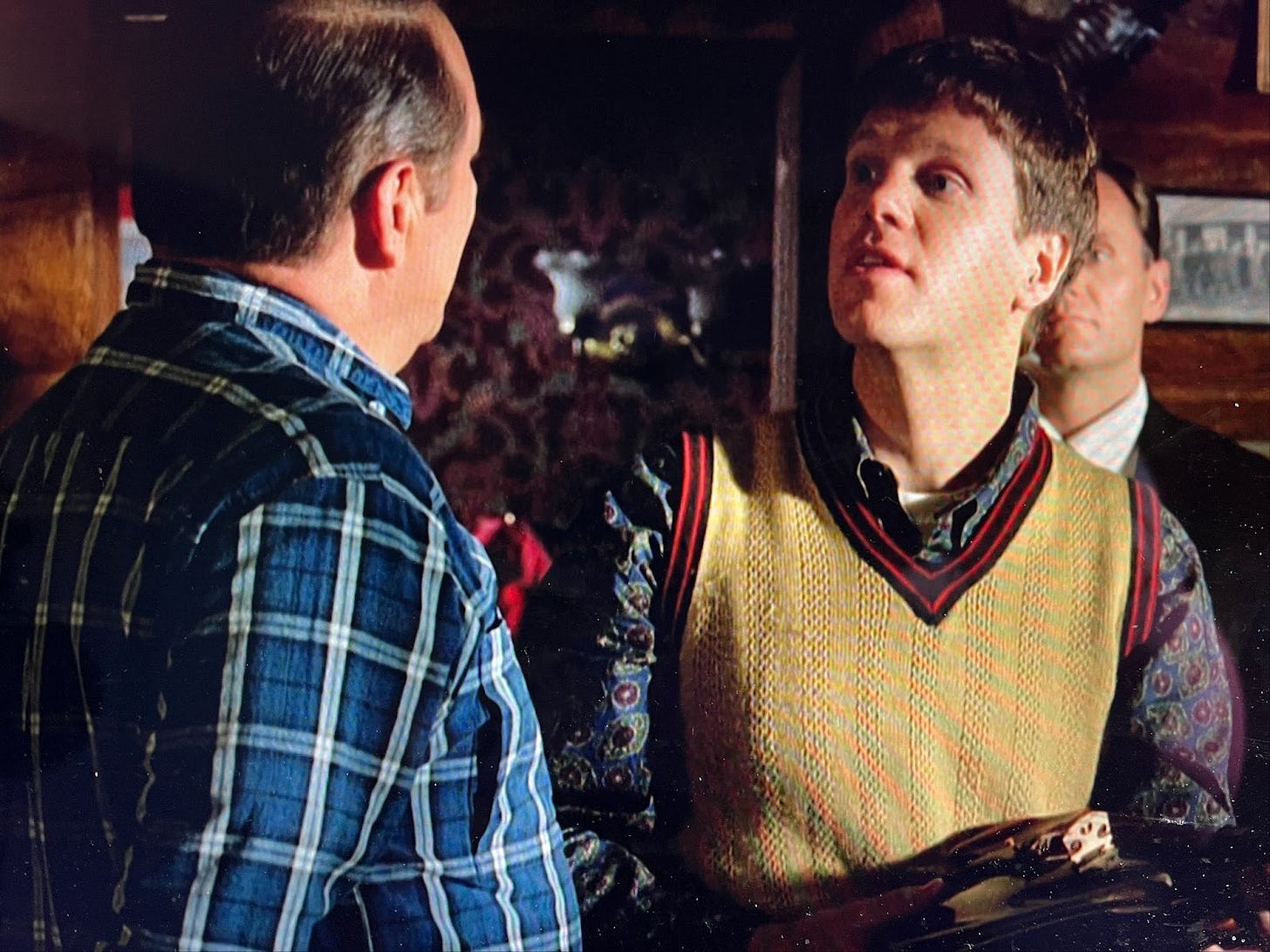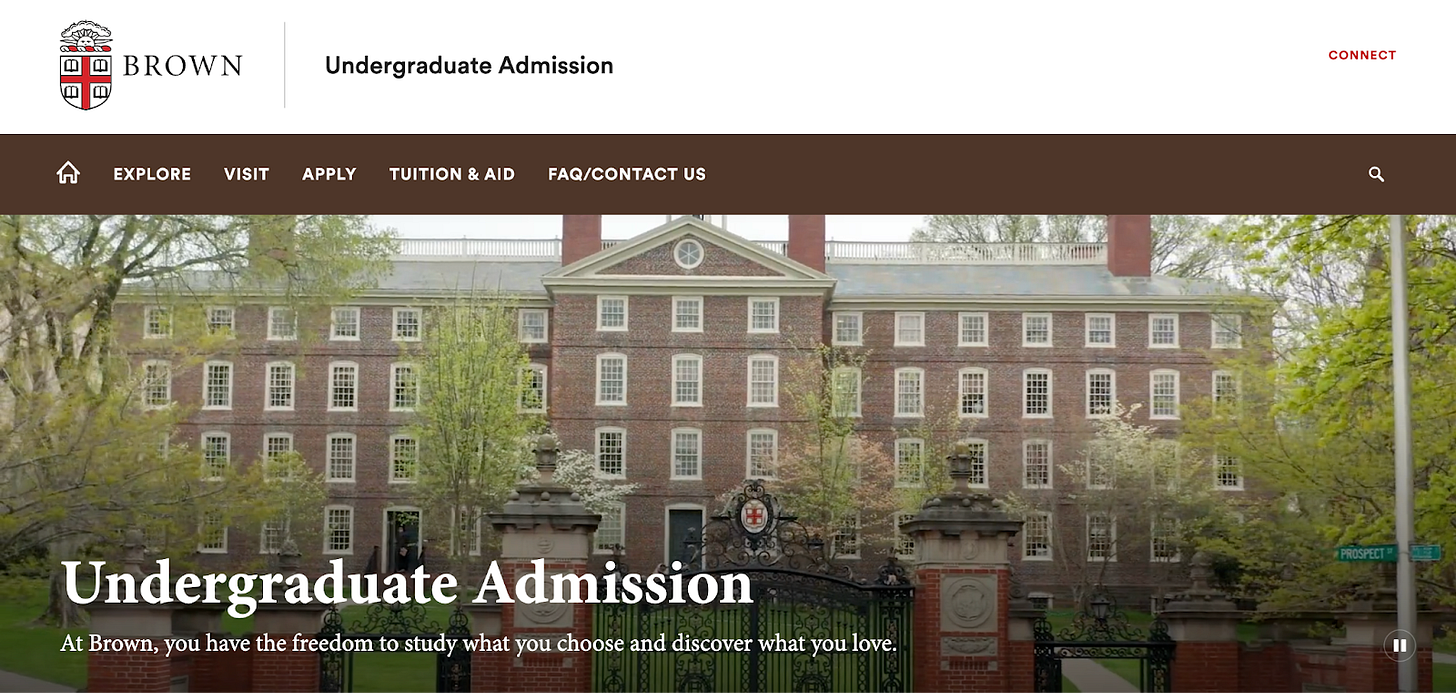
The college landscape in America is beginning to look a lot like the 1920s, but since we’ve stopped reading the literature of that era, at least in school, it seems that we’re destined to learn those lessons the hard way all over again.
Elite colleges then were reserved for the rich, as Princeton is for Amory Blaine in This Side of Paradise, and the primary benefit of a public university education was either climbing into wealth, as George F. Babbitt does in Sinclair Lewis’s 1922 novel, or compounding that wealth, as Babbitt hopes his son Ted will do.
The only problem is that Ted doesn’t want to go to college. He wants to see the world, work on cars, do pretty much anything other than sell real estate like his father or go to law school, as Dear Old Dad sorely wishes he would. In one scene, Ted even wonders whether remote learning might be the best option of all. He keeps getting advertisements for home study courses such as “Power and Prosperity in Public Speaking,” which he could complete anywhere.

Don’t Drop Out Of The Gentleman Class!
Ted wonders why he shouldn’t cut out Shakespeare and just get the essentials for far less. Why not “go off to China or some peppy place, and study engineering or something by mail?”
His father sets him straight:
No, and I’ll tell you why, son. I’ve found out it’s a mighty nice thing to be able to say you’re a B.A. Some client that doesn’t know what you are and thinks you’re just a plug business man, he gets to shooting off his mouth about economics or literature or foreign trade conditions, and you just ease in something like, ‘When I was in college—course I got my B.A. in sociology and all that junk—’ Oh, it puts an awful crimp in their style! But there wouldn’t be any class to saying ‘I got the degree of Stamp-licker from the Bezuzus Mail-order University!’ You see— My dad was a pretty good old coot, but he never had much style to him, and I had to work darn hard to earn my way through college. Well, it’s been worth it, to be able to associate with the finest gentlemen in Zenith, at the clubs and so on, and I wouldn’t want you to drop out of the gentlemen class—the class that are just as red-blooded as the Common People but still have power and personality. It would kind of hurt me if you did that, old man!
George Babbitt’s grandfather was a homesteader and his father a tradesman. Babbitt capitalizes on the privilege he’s been given by graduating from the state university and trying to climb as high as he can within the business class. Babbitt enjoys a comfortable life in Zenith, a growing Midwestern city, but nothing he achieves is ever enough.
Babbitt envies the McKelveys, the leading couple of the Smart Set, who make headlines for hosting an English aristocrat, Sir Gerald Doak. And he looks down on college classmates who haven’t mounted the same level of success that he has, assuming that anyone who isn’t hustling at his pace or striving for a higher position of influence is a failure. Are you a 100 Percenter or a 10 Percenter? This is the real reason Babbitt wants Ted to go to college. They must not only keep up appearances, they have to keep trying to earn or elbow their way into the Smart Set.
It has become impolite to speak of a gentleman class or Common People, but Babbitt’s fear of his son falling into a lower social class is precisely what’s driving the present spike in applications to elite schools. Scott Galloway compares Harvard, Yale, Stanford, and other exclusive institutions to cartels for their price-fixing, gatekeeping, and caste building. If the soaring cost of tuition isn’t enough, families are asked to absorb additional financial risk through Early Decision, a process by which students can apply early to their top school and optimize their odds of getting in. The catch is that they must also commit to attending if admitted, thereby foregoing the opportunity to compare competing offers of financial aid.
The only reason this risk is worth it is that going to a top-rated college has become something akin to joining a club in the 1920s. Babbitt belongs to many such clubs, the Boosters’ Club, the Athletic Club, the Order of Good Fellows. Near the end of the novel he is bullied into joining the Good Citizens’ League, which itself has been formed in opposition to labor organizers and socialists like Professor Seneca Doane. The purpose of these organizations, as near as I can tell (never having belonged to one) is to create in-groups and out-groups and to do precisely the kind of favor-trading that job referrals now represent.
I’ve seen this story play out on LinkedIn many times over the past year. Professionals who have more than enough credentials to be employable spend months, sometimes over a year, beating on the industry gates. The lucky ones, when they finally break through, never have to submit another cold application again. It is, as one colleague told me, more a matter of snatching the opportunities that come your way as a business insider than it is about searching them out.
Everything hinges on gaining access to the club. To step outside the club, to think independently, as Babbitt tries to do from time to time, is to threaten the social order and thereby to attract its wrath or, worse, its indifference.
Shortcut Educational Co.
Babbitt confides to Ted that mail-order courses might be a great innovation, a way to cut out all the inefficiency from a degree, by which he means — as everyone does who is still looking for leaner graduation requirements — the humanities. But Babbitt can’t say so out loud.
I can see what an influence these courses might have on the whole educational works. Course I’d never admit it publicly—fellow like myself, a State U. graduate, it’s only decent and patriotic for him to blow his horn and boost the Alma Mater—but smatter of fact, there’s a whole lot of valuable time lost even at the U., studying poetry and French and subjects that never brought in anybody a cent. I don’t know but what maybe these correspondence-courses might prove to be one of the most important American inventions.
The current wave of bullishness for the creator economy and for startups like MasterClass has caused some educators to embrace ideas that even Babbitt considers fringe. The demand for digital education continues to grow for all the reasons that Ted gives: convenience, flexibility, and cost. There is some evidence that people are opting out of the once-popular Massive Open Online Courses at Harvard, MIT, and other highly selective universities. But the same questions about those knockoffs remain: Will expediting the credential (or the skill) become a higher priority than quality in-person learning? How much are people willing to pay for the in-person experience? And once people are sorted into those two groups, what class markers logically follow? Surely the Bezuzus Mail-Order University stigma has not disappeared.
When I left academe in 2021, I thought that the literacy and behavioral challenges I was seeing must be absent at more selective schools. Surely those students did the assigned reading, came to class with all of the required materials, and kept talking and thinking about their courses long after the period had ended? Hopefully that is true on some campuses, but Niheer Patel reminds us in an op-ed in The Daily Pennsylvanian that many exclusive environments are not as intellectually curious as they claim to be.
Near the beginning of “Where Dreams Come to Die,” Patel cites a staggering statistic: more than half of all students at Penn choose careers in consulting or finance. And for graduates of Wharton, Penn’s business school, that figure is 84%. Here’s Patel:
These career fields do not excite the vast majority of students. They aren’t the subjects of the impassioned rant sessions that resonate in the residence halls. In fact, they aren’t even the subjects of the personal statements that got students here. We are killing the things that bring us joy (and good to the world) in the pursuit of the false god that is absurd wealth….
When Morgan Stanley literally owns Chicago’s streets, when the Raytheon engineer expands a bomb’s explosive capabilities, when private equity makes home ownership unattainable, there is an incentive to not even think about the greater ramifications of those actions beyond the paycheck.
The worst part of all is that it doesn’t even feel like a choice. Finance, consulting, defense, and all of these industries that inflict anguish on the everyday and marginalized are so commonplace that it takes far too much effort to opt out. The passions to do good in the world are quickly squashed under the guise of employability and vain metrics of success.
Patel admonishes his readers to dream bigger, to study what they love, to give more back to the world than they take. But he’s trying to buck a stiff headwind. He’s surrounded by George Babbitts who think they’ll only be happy as McKelveys, never stopping to think that there is always another tier above that, the Sir Gerald Doaks, and on up the line.
Zenith is not only a fictional city, it’s a fictional concept.
The Artist Friend
George Babbitt’s best friend is Paul Riesling, a talented violinist who earns a living selling tar roofing. They belong to all the same clubs and enjoy roughing it together in the northern woods. But Paul is one of the few characters who can see his malaise for what it is. During one impassioned conversation, he confronts Babbitt with the hollowness of their lives:
Take all these fellows we know, the kind right here in the club now, that seem to be perfectly content with their home-life and their businesses, and that boost Zenith and the Chamber of Commerce and holler for a million population. I bet if you could cut into their heads you’d find that one-third of ’em are sure-enough satisfied with their wives and kids and friends and their offices; and one-third feel kind of restless but won’t admit it; and one-third are miserable and know it. They hate the whole peppy, boosting, go-ahead game.
It doesn’t do anyone much good to love beautiful things in Babbitt’s world. Riesling grows to hate his wife Zilla so much that he shoots her during an argument. Zilla survives, and Riesling gets three years in prison. He is one of the few characters in Babbitt who sees Zenith clearly, but his prospects will have dipped well below tar roofing by the time he is granted parole.
Riesling’s character reminds me of Cal Ingraham, the violinist in Northern Exposure who is enjoying a modest career doing what he loves until Maurice Minifield, the tycoon of Cicely, Alaska, hires him to test a Guarneri del Gesu. The celebrated violin has just been offered for $1.6 million (about $3.4 million in today’s currency) and Minifield wants to make sure it’s legit before he makes the investment.
The violin is not only authentic, it completely betwitches Cal. He cannot abide going back to his former life knowing that such an exquisite instrument is locked in Minifield’s safe.
After a botched attempt to murder Minifield and a successful insanity plea, Cal ends up in a mental institution. Minifield knows that the violin will deteriorate if it isn’t used, so he brings the Guarneri to Cal’s ward periodically, allowing the artist a few moments with his love while also ensuring that the instrument continues to appreciate in value.
The episode offers as brutal a portrait of the arts in America as I’ve ever seen, and the conclusion is not much different from Lewis’s. Creativity doesn’t have a place in Babbitt’s world, either, unless it can be monetized.
The Student As Customer
Perhaps the most striking resemblance to 1920 in today’s college environment is the feeling that students are customers. Wendy Fischman and Howard Gardner, of Harvard University’s Graduate School of Education, recently completed a five-year study of what people think college is for. They interviewed more than 1,000 students and 1,000 professors, administrators, and parents across 10 campuses representing a wide range of selectivity.
As Fischman and Gardner report in “Customers in the Classroom,” close to half of the students they interviewed “saw college as a route to a job or graduate school and focused on doing what was required — and no more — to get them there.”
College presidents are just as obsessed with growth as Zenith’s boosters are, and every university wants to be the next Zip City. But as a parent I’m thinking about how to encourage my children to be more than customers by the time they begin their college searches. The greatest problem with higher ed is not that its leadership has been taken over by industrialists, but that its graduates are increasingly turning into Babbitts, and the budget models that have steadily eroded the arts and humanities guarantee that no one reads Babbitt anymore.
Just out of curiosity I looked at the marketing pages at a few universities I’m connected to through friends or colleagues. This is by no means a systematic survey, so take it for the anecdotal glimpse that it is. When I began my graduate training in 1997, my sense was that rigor marked the primary difference between less selective public universities and the more exclusive tier. But it seems that the gap between these institutions is now defined just as much by a contrast in purpose.
These are all standard sales pitches for convenience, practicality, and more value for less.
The rhetoric at the Ivies is a little different, even if the underlying ethos, as Patel suggests, is not always what it seems.
It is dangerous to draw too many conclusions from recruitment messages alone, but there are at least two different stories about higher education now being told. One is the story that seduced me once upon a time, the one about the examined life. The other is George Babbitt’s vision for what a college degree ought to mean, just what those tuition dollars ought to buy.
Of Babbitts and Bartlebys
The trendy talking point now is that universities have lost the public trust, but it might be more fruitful to ask whether the American public has ever trusted professors or whether it’s just become more acceptable to disrespect them out loud.
I served as a representative to the Trustees as an undergraduate and twice as a professor, and all three boards were almost exclusively populated by Babbitts and McElveys. I have been privy, among such company, to both polite and crass variations on Babbitt’s speech to the Zenith Real Estate Board, where he denounces the “long-haired gentry who call themselves ‘liberals’ and ‘radicals’ and … ‘intelligentsia’ and God only knows how many other trick names” as just “snakes to be scotched.”
Then Babbitt tells us what he really thinks.
The American business man is generous to a fault, but one thing he does demand of all teachers and lecturers and journalists: if we’re going to pay them our good money, they’ve got to help us by selling efficiency and whooping it up for rational prosperity! And when it comes to these blab-mouth, fault-finding, pessimistic, cynical University teachers, let me tell you that during this golden coming year it’s just as much our duty to bring influence to have those cusses fired as it is to sell all the real estate and gather in all the good shekels we can.
Not till that is done will our sons and daughters see that the ideal of American manhood and culture isn’t a lot of cranks sitting around chewing the rag about their Rights and their Wrongs, but a God-fearing, hustling, successful, two-fisted Regular Guy, who belongs to some church with pep and piety to it, who belongs to the Boosters or the Rotarians or the Kiwanis, to the Elks or Moose or Red Men or Knights of Columbus or any one of a score of organizations of good, jolly, kidding, laughing, sweating, upstanding, lend-a-handing Royal Good Fellows, who plays hard and works hard, and whose answer to his critics is a square-toed boot that’ll teach the grouches and smart alecks to respect the He-man and get out and root for Uncle Samuel, U.S.A.!
Small wonder that Willa Cather worried, in a 1923 essay, that the University of Nebraska was turning into a “gigantic trade school.”
The men who control its destiny, the regents and the lawmakers, wish their sons and daughters to study machines, mercantile processes, ‘the principles of business’; everything that has to do with the game of getting on in the world—and nothing else. The classics, the humanities, are having their dark hour. They are in eclipse. Studies that develop taste and enrich personality are not encouraged. But the ‘Classics’ have a way of revenging themselves. One may venture to hope that the children, or the grandchildren, of a generation that goes to a university to select only the most utilitarian subjects in the course of study—among them, salesmanship and dressmaking—will revolt against all the heaped-up machine-made materialism about them. They will go back to the old sources of culture and wisdom—not as a duty, but with burning desire.
Cather believed that the pioneer spirit would surely be reborn in a future generation that would throw off its Babbittian shackles and reclaim beauty and truth as its birthrights. But as near as I can tell it’s a straighter line from the homestead to the consulting firm than from the frontier to the classics archive. And it’s useful to remember that Ted Babbitt has no more intention of studying literature and art than today’s high school graduates do. Ted’s vision is a more modest version of his father’s: more work/life boundaries, more room for recreation and travel, but still materialistic to the core. Scarcely a rebellion at all.
I’d like to believe Cather, but I saw a more likely prediction recently in a friend’s Facebook feed (sharing with permission).
That last part gets a little dark, but I guess if the Regents and Trustees have stripped the varnish from their remarks, so have the professors. We’ve known this for a while, that Latin is just garnish on a college crest, that thought leaders increasingly sound like Babbitts and liberal arts professors are fast becoming Bartlebys, sorting the dead letters of dead disciplines for the flames.
I still believe that the fruit of my college and graduate education is not so much a skillset as a worldview. It is a way of reading texts carefully with context and evidence and reading myself just as carefully in that mirror with no predetermined outcome in mind but the truth.
That’s what Sinclair Lewis was trying to do in his portrait of Babbitt: hold up a mirror of America in the 1920s. Lewis’s titular character could have saved himself a great deal of misery if he’d paid attention in Shakespeare class or examined his own values throughout an American literature survey. Babbitt keeps falling prey to fantasies about love, pioneer history, and self-worth that have been thoroughly debunked in the Western canon. But Babbitt is incapable of learning anything from history because he doesn’t study it. He is a typical American, always losing his innocence for lack of a real education, suffering from an anger borne of ignorance.
Sometimes institutions have to crumble to be reborn. I wonder what story the children of the 2020s will tell a decade hence. If they read Babbitt, and I’m sure some of Niheer Patel’s kindred spirits will, there might yet be time to take its warnings to heart. Lewis’s novel ends before George Babbitt has a chance to learn this, but all it takes is one Black Thursday to push a zenith toward its nadir.
Even today, we are placing an extraordinary amount of faith in the market as our guiding light.

















And now we have big business pushing universities to train students to use AI because they will need it for future employment. The distinction between learning and being trained has been erased thanks to higher education adopting a retail model.
Oof, this was tough to read because I recognized so much, correction: all, of it.
Your friend’s FB post may well point to where we’re going. Human history makes giant swerves. Our species unfortunately seems to learn best from mistakes.
One line that stood out to me was “the whole peppy, boosting, go-ahead game” - not least because I love your description of my newsletter as a “break from hustle culture.” So you got me thinking about my particular role in this time. I’m starting my Tuesday with appreciation that I’m still inside the institution, where my classes this very day will ask students to consider the value to them of books. (Today, it’s Ralph Ellison and Margaret Atwood in presentations at noon, Octavia Butler in class discussion at 1:30.) You’ve recommitted me to hope. One day at a time.